Dangers of Cold Water Extraction for Hydrocodone
What is cold water extraction? Cold water extraction is the process whereby a substance is extracted from a mixture via cold water. It is a type of fractional crystallization. The process generally involves taking a mixture of substances, dissolving them into warm water, and then cooling the mixture. The insoluble compounds precipitate out of the water, while the soluble ones stay dissolved. The solution can then be separated through filtration or decantation.
Cold water extraction (CWE) is one way of modifying a drug for a specific reason. The cold water extraction process is sometimes used to remove aspirin, ibuprofen, or acetaminophen (also known as paracetamol, sold under Tylenol) from combination painkiller products containing opioid/opiate drugs like codeine, oxycodone, or hydrocodone. Cold water extraction of codeine and hydrocodone has become popular amongst recreational drug users because it speeds up absorption and reduces hepatotoxicity caused by paracetamol and gastrointestinal irritation caused by aspirin and ibuprofen.
Cold water extract hydrocodone process exploits the differing solubilities of hydrocodone and paracetamol (also known as acetaminophen) at low temperatures. The solubility of paracetamol declines from 14.9 g/L at 25 °C to 7.2 g/L at zero °C, while hydrocodone (depending on the salt) typically has a solubility of 2.49X10+2 mg/L at 25 °C (est). Users attempt to circumvent the potential toxicity associated with paracetamol (acetaminophen) by using “cold water extraction”, a tampering method involving separation and filtration of the paracetamol. This supposedly allows a recreational dose of codeine without paracetamol toxicity.
Hydrocodone Cold Water Extraction, How Does It Work?
The non-medical use of prescription drugs such as Vicodin ( hydrocodone plus paracetamol/acetaminophen) has emerged over the last decade as a significant health problem in the United States. Psychotherapeutic drug abuse is frequently characterized by excessive dosage, formulation tampering via cold water extraction method, and alterations in the route of administration. The perceived motives for drug/formulation tampering appear to be enhanced drug effects and a faster onset of action. Tampering with formulations may allow more immediate drug delivery by the intended route, access to a higher dose, changes to alternate faster routes of administration, and separation of undesirable ingredients.
During the cold water extraction hydrocodone process, Vicodin painkiller tablets are crushed and ground down into a fine powder, then mixed with warm water. This mixture is then allowed to settle and is cooled. During the process, Vicodin painkiller tablets are crushed and ground down into a fine powder, then mixed with warm water. This mixture is then allowed to settle and is cooled. The mixture can then be strained using a coffee filter or cheesecloth to remove these solids, with the opioid still dissolved into the water. Acetaminophen toxicity is one of the most common causes of poisoning worldwide. It’s also the most common cause of acute liver failure in the United States.
Risks Associated With Cold Water Extract Hydrocodone Method
Combination analgesics may not be a good choice for you if you’re experiencing moderate to severe pain and have a history of liver problems. However, removing acetaminophen/paracetamol from Vicodin through Cold Water Extraction is not a legal or safe way to control your pain. Even though the Cold Water Extraction process and filtration reduce the amount of hydrocodone present in the final mixture relative to the total amount in the tablet, concentrating hydrocodone in liquid makes it far more difficult to control and measure your dosage.
While removing acetaminophen from prescription painkiller tablets such as Vicodin may reduce liver toxicity, it does nothing to address the unique risks and side effects of prescription opioid abuse. These risks include overdose and the likelihood of developing a physical dependence on the opioid drug over time. It also increases the risk of becoming addicted and allowing the pleasure of opioid use to change your thoughts and behaviors, despite the consequences.
Short-Term Effects of Cold Water Extraction Hydrocodone
The National Institutes of Health (NIH) estimates that 20 percent of Americans have taken prescription drugs like Vicodin for non-medical (recreational) reasons—and this type of abuse is rising. Even though hydrocodone addiction has generally been viewed as a problem among the middle and upper classes due to the ease of getting prescriptions and access to health insurance, rates of prescription drug abuse have been on the rise for people from all socioeconomic and ethnic groups as prescription diversion becomes increasingly common.
Hydrocodone is a prescription medication sold under multiple brand names, such as:
- Vicodin
- Norco
- Lortab
These brands are combinations of hydrocodone and acetaminophen. Other trade formulations also exist hydrocodone in variety with other analgesic or anti-inflammatory medication, such as ibuprofen. Doctors prescribe this opioid drug for its pain relief and cough suppressant qualities.
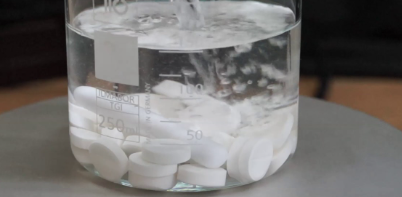
Skip To:
- Dangers of Cold Water Extraction for Hydrocodone
- Hydrocodone Cold Water Extraction, How Does It Work?
- Risks Associated With Cold Water Extract Hydrocodone Method
- Short-Term Effects of Cold Water Extraction Hydrocodone
- Hydrocodone Abuse Statistics
- Hydrocodone Fact Sheet
- Long-Term Effects of Cold Water Extraction Hydrocodone
- Risks Associated with Cold Water Extraction DXM
- Cold Water Extraction DXM Abuse
- Dangers of Cold Water Extract Codeine
- Cold Water Extraction Codeine Abuse
- How Cold Water Extraction Oxycodone Process Works
- Risks Associated with Cold Water Extraction Oxycodone
- What is Cold Water CBD Extraction?
- Opioid Addiction Treatment
Learn More:
- How Long Does Hydrocodone Stay In Your System?
- How Long Does It Take for Hydrocodone to Kick in?
- How Long Does Hydrocodone Stay In Urine?
- Effects of Hydrocodone and Alcohol
- Hydrocodone vs oxycodone
- Dilated Pupils Drug
- Pain Medication List Strongest to Weakest
- Mixing Codeine and Alcohol
- Marijuana and ADHD
- Alcohol vs Marijuana
- Percocet Side Effects
- Molly Percocet
Short-term, desirable effects of hydrocodone may include:
- Increased sense of well-being
- Numbness
- Feeling sleepy or lethargic
- Reduced worry and stress
Some hydrocodone users may experience mild side effects when they take the drug. These symptoms generally decrease as the dose wears off. They may include:
- Anxiety/dysphoria
- Constipation
- Drowsiness
- Dizziness
- Fatigue
- Headache
- Trouble sleeping/nightmares
- Nausea
- Diffuse muscle weakness
- Itchiness
Some of the more severe side effects of hydrocodone require medical care and may include the following:
- Breathing problems
- Bowel obstruction
- Vomiting
- lowed or irregular heartbeat
- Severe allergic reactions such as rash, hives, itching, or swelling
- Trouble urinating
Get Help. Get Better. Get Your Life Back.
Searching for Accredited Drug & Alcohol Rehab Centers Near You? Or Mental Health Support?
Even if you have failed previously, relapsed, or are in a difficult crisis, we stand ready to support you. Our trusted behavioral health specialists will not give up on you. Call us when you feel ready or want someone to speak to about therapy alternatives to change your life. Even if we cannot assist you, we will lead you wherever you can get support. There is no obligation. Call our hotline today.
FREE Addiction Hotline – Call 24/7Hydrocodone Abuse Statistics
Hydrocodone is one of the most frequently prescribed opioids in the United States. More than 136.7 million prescriptions for hydrocodone-containing products were dispensed in 2013. More recently, misuse has significantly decreased from 6.9 million U.S. persons to 5.5 million in 2017 and 2018, respectively.
2.1 million
An estimated 2.1 million in the United States alone abuse opioid pain reliever medications.
Source: NIDA
136.7 million
Hydrocodone is the most frequently prescribed opioid in The United States, with more than 136.7 million prescriptions.
Source: DEA
6.9 million
Hydrocodone is the most frequently prescribed opioid in The United States, with more than 136.7 million prescriptions.
Source: NIDA
Hydrocodone Drug Fact Sheet
Hydrocodone
Hydrocodone and acetaminophen combination is used to relieve pain severe enough to require opioid treatment and when other pain medicines did not work well enough or cannot be tolerated.
Brand Names
- Anexsia
- Ceta Plus
- Co-Gesic
- Dolorex Forte
- Hycet
- Lorcet
- Lortab
- Maxidone
- Norco
- Stagesic
- Vicodin HP
- Zydone
Common Side Effects
- Stomach pain
- Dry mouth
- Tiredness
- Headache
- Back pain
- Muscle tightening
- Difficult, frequent, or painful urination
Serious Side Effects:
- Chest pain
- Hallucinations
- Fever
- Severe muscle stiffness or twitching
- Loss of coordination
- Nausea, vomiting, loss of appetite, weakness, or dizziness
- Inability to get or keep an erection
- Irregular menstruation
- Decreased sexual desire
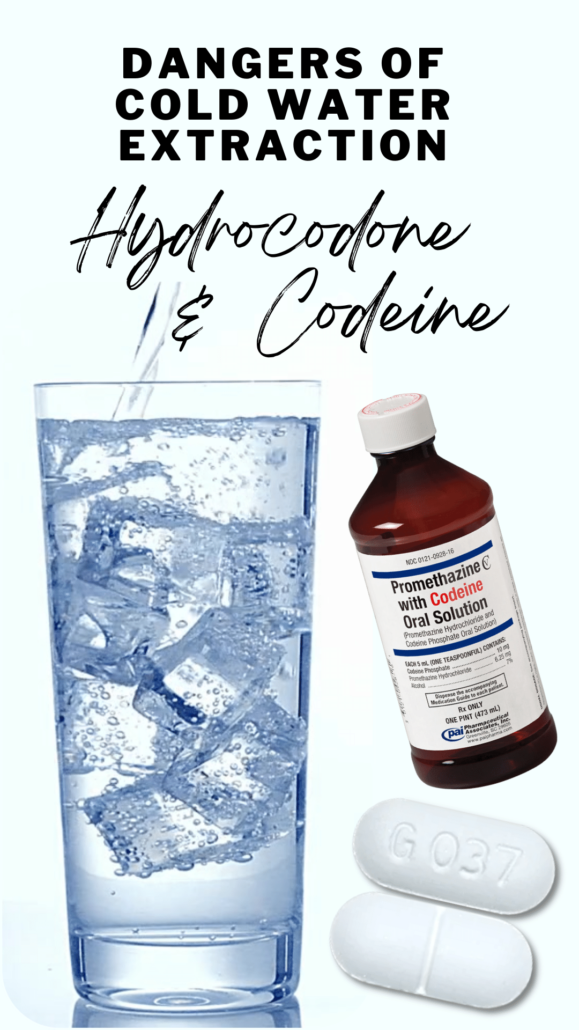
Long-Term Effects of Cold Water Extraction Hydrocodone
Addiction may be one of the most dangerous long-term effects of cold water extraction hydrocodone use. Hydrocodone is an opiate or narcotic similar to codeine, heroin, and morphine. These kinds of substances are dangerous because you can become addicted even when you are taking them as recommended by your doctor.
Repeated use of this prescription drug frequently leads to tolerance, so the person will need to take more of the drug to get the same effect as the body adjusts to the dose or frequency. Tolerance can develop relatively fast with these medications, becoming noticeable within a few doses taken in some cases.
Tolerance to hydrocodone can easily lead to addiction. Addiction entails compulsive and problematic drug use that negatively impacts multiple areas of life. Despite the problems it creates, those locked in a cycle of compulsive drug abuse continue to seek out and abuse hydrocodone.
When hydrocodone is abused on a long-term basis, users can experience the following complications:
- Breathing problems
- Organ damage from oxygen deprivation
- Slower heart rate
- Coma

Get Your Life Back
Find Hope & Recovery. Get Safe Comfortable Detox, Addiction Rehab & Mental Health Dual Diagnosis High-Quality Care at the We Level Up Treatment Centers Network.
Hotline (877) 378-4154Risks Associated with Cold Water Extraction DXM
What is DXM? DXM is a synthetically produced substance chemically related to codeine, though it is not an opiate. DXM is an ingredient in more than 140 over-the-counter cough and cold remedies and, since the 1950s, has gradually replaced codeine as the most widely used cough suppressant in the United States. It is available in capsule, liquid, gelatin capsule, lozenge, and tablet forms. It also is available in powdered form on the Internet—typically for sale to laboratories researching DXM.
Over-the-counter DXM products often contain other ingredients such as acetaminophen, chlorpheniramine, and guaifenesin. Large dosages of acetaminophen can cause liver damage; large dosages of chlorpheniramine can cause increased heart rate, lack of coordination, seizures, and coma; and large dosages of guaifenesin can cause vomiting. Some first-time users may not abuse DXM repeatedly if they experience adverse side effects—such as vomiting—commonly associated with the other ingredients in over-the-counter DXM medications.
Abuse of dextromethorphan in cold medications has become an increasingly common problem in the US. DXM cold water extraction allows users to feel dextromethorphan’s effects without the side effects of antimuscarinic agents, saccharin, guaifenesin, and additives commonly found in combination cold preparations.
Cold Water Extraction DXM Abuse
DXM abusers can obtain the drug at almost any pharmacy or supermarket. Most seek out products that have a high concentration of the drug. One of the most frequently abused products containing DXM is Coricidin HBP Cough & Cold, which contains 30 milligrams of DXM per tablet. Abusers often refer to Coricidin HBP Cough & Cold as triple C because of the three Cs imprinted on the red pills. Other slang terms include skittles, dex, candy, and red devils. Another frequently abused product containing DXM is Robitussin DM, a syrup that contains 2 milligrams of DXM per milliliter.
DXM abuse among adolescents will most likely increase as the drug is relatively easy to obtain and inexpensive. Moreover, adolescents perceive the risk of abusing the drug as low. Stopping DXM abuse will require increased public awareness of the drug’s potential for abuse, increased awareness of the inherent risks associated with abusing DXM, and increased diligence of parents, educators, health care providers, law enforcement personnel, and retailers who market products containing DXM.
First-class Facilities & Amenities
World-class High-Quality Addiction & Mental Health Rehabilitation Treatment
Rehab Centers TourRenowned Addiction Centers. Serene Private Facilities. Inpatient rehab programs vary.
Addiction Helpline (877) 378-4154Proven recovery success experience, backed by a Team w/ History of:
15+
Years of Unified Experience
100s
5-Star Reviews Across Our Centers
10K
Recovery Success Stories Across Our Network
- Low Patient to Therapist Ratio
- Onsite Medical Detox Center
- Comprehensive Dual-Diagnosis Treatment
- Complimentary Family & Alumni Programs
- Coaching, Recovery & Personal Development Events
Dangers of Cold Water Extract Codeine
Codeine is prescribed to treat mild to moderate pain, coughing, and diarrhea. Codeine belongs to a class of medications called opioid analgesics. These induce pain relief by suppressing the transmission of pain signals to the brain. The drug has also been labeled an antitussive that represses cough by inhibiting the cough center in the brain. Precautions must be taken when using this drug. Since opiates are highly addictive, suddenly increasing doses or consuming them for a long time can easily result in opioid dependence. Attempting to quit without medical help can also lead to the onset of opioid withdrawal symptoms. Codeine is taken in oral tablets or liquid form.
Cold water codeine extraction removes codeine from a mixture with acetaminophen (paracetamol) by utilizing cold water, making it easier to abuse. The substance to be obtained is usually less soluble than the other components in the mix. The process first involves dissolving the mixture in warm water and cooling it. The less soluble compound quickly turns into a solid while the other components remain dissolved. Cold water extraction is commonly used to separate opiates such as codeine from an opioid-containing mixture such as Tylenol, the brand for acetaminophen. For example, in the mixture of codeine with other medications like acetaminophen (or paracetamol) to alleviate cough, codeine can be separated with cold water extraction.
Individuals may carry out cold water extraction codeine at home to obtain the opioid from a mixture. The cold water extraction process is a commonly reported means of tampering with prescription drugs. These people may do so for many reasons, such as recreational purposes to support their codeine addiction. A more frightening reason may be to obtain codeine to sell illegally. The latter is especially a cause for concern to doctors who prescribe codeine to their patients.
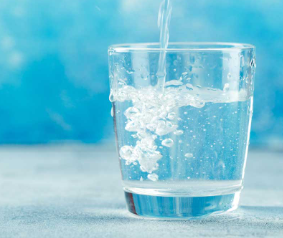
Cold Water Extraction Codeine Abuse
Codeine abuse is similar to other opiate drugs, such as morphine, hydrocodone, and heroin, because it is a CNS depressant. The drug, in large doses, can initially produce sensations of relaxation, euphoria, calmness, pleasant sleepiness, a sense of well-being, and a loss of inhibitions. However, codeine can also produce several serious side effects, including:
- Slowed or reduced heartbeat
- Depressed or stopped breathing
- Seizures
- Hallucinations or delusions
- Suicidal ideation or violent aggression toward others
- Cardiac arrest
- Inability to wake up or coma
World-class, Accredited, 5-Star Reviewed, Effective Addiction & Mental Health Programs. Complete Behavioral Health Inpatient Rehab, Detox plus Co-occuring Disorders Therapy.
CALL (877) 378-4154End the Addiction Pain. End the Emotional Rollercoaster. Get Your Life Back. Start Drug, Alcohol & Dual Diagnosis Mental Health Treatment Now. Get Free No-obligation Guidance by Substance Abuse Specialists Who Understand Addiction & Mental Health Recovery & Know How to Help.
How Cold Water Extraction Oxycodone Process Works
Percocet, which contains an opioid pain reliever ( oxycodone) and a non-opioid pain reliever ( acetaminophen ) is crushed and dissolved in cold water and undergoes filtration through a coffee filter. The cold water extraction Percocet process is relatively simple for people who find a “safer” method of oxycodone use appealing. The extracted oxycodone can be smoked, snorted, or injected after being mixed into a solution.
Illicit use of oxycodone can increase your risk of overdose. It can be challenging to tell the amount you ingest after extracting the oxycodone. Taking large amounts of oxycodone can lead to an opioid overdose. Abusing opioid analgesics can involve taking them in unapproved ways or taking high doses of the drug simultaneously. Cold water extraction Oxycodone can include both factors, increasing your risk of long-term abuse and opioid use disorders.
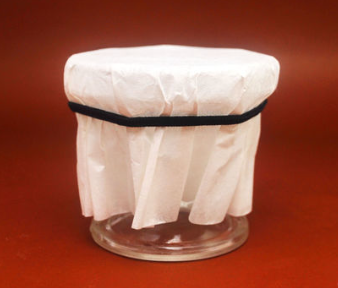
Risks Associated with Cold Water Extraction Oxycodone
This prescription drug is used to help relieve moderate to severe pain. Oxycodone belongs to a class of drugs known as opioid analgesics. It works in the brain to change how your body feels and responds to pain. A California man and an alleged accomplice from Texas face life in prison after being indicted on charges they turned to the dark web to hawk 120,000 fake oxycodone pills laced with fentanyl to thousands of unsuspecting customers across the country, officials said.
The abuse of oxycodone products, in general, has increased in recent years. Several deaths have explicitly resulted from the abuse of OxyContin (the brand name of Oxycodone). OxyContin is designed to be swallowed whole; however, abusers ingest the drug in various ways. OxyContin abusers often chew the tablets, crush the pills, and snort the powder. Because oxycodone is water soluble, crushed tablets can be dissolved in water and injected into the solution. The latter two methods lead to the rapid release and absorption of oxycodone.
Oxycodone and heroin have similar effects; therefore, both drugs are attractive to the same abuser population. Oxycodone is sometimes referred to as “poor man’s heroin,” despite the high price it commands at the street level. Cold water extraction oxycodone is a form of drug tampering where oxycodone is taken out of combination analgesics containing oxycodone, paracetamol, or acetaminophen.
What is Cold Water CBD Extraction?
The Cold Water CBD extraction process is based on traditional techniques that have evolved over the years. It uses ice water/baths to extract and produce tetrahydrocannabinol (THD) and cannabidiol (CBD) distillate. Tetrahydrocannabinol (THC) is the psychoactive compound in cannabis that produces the high associated with marijuana. THC travels to the brain via the bloodstream and attaches to the endocannabinoid receptors in areas such as pleasure, movement, memory, and thought.
The most common side effects of consuming CBD or CBD oil include the following:
- Fatigue
- Nausea or vomiting
- Diarrhea
- Dizziness
- Anxiety or depression
- Changes in appetite/weight
- Psychosis
Another cause for concern is the unreliability of the purity and dosage of CBD in products. A recent study of 84 CBD products bought online showed that more than a quarter of the products contained less CBD than labeled. In addition, THC was found in 18 products.
Experience Transformative Recovery at the We Level Up Treatment Center.
See our authentic success stories. Get inspired. Get the help you deserve.



Start a New Life
Begin with a free call to an addiction & behavioral health treatment advisor. Learn more about our dual-diagnosis programs. The We Level Up treatment center network delivers various recovery programs at each treatment facility. Call to learn more.
- Personalized Care
- Caring Accountable Staff
- World-class Amenities
- Licensed & Accredited
- Renowned w/ 5-Star Reviews
We’ll Call You
Opioid Addiction Treatment
If you think a loved one is abusing drugs or alcohol, you should research the substances and their associated addiction to understand better what your loved one needs. Next, you must plan an intervention to provide your loved ones with options to battle the effects of drug addiction in a safe and supportive environment. During this intervention, offer compassion and support instead of judgment. Lastly, show your support throughout the entire treatment process.
In addition, prolonged drug use can have severe physical and psychological effects on you, so it is essential to seek treatment as soon as possible. To better understand how long hydrocodone stays in your system, it is essential to get medical assistance when needed. Inpatient drug rehab offers intensive care that can help you promptly get through the early stages of drug withdrawal.
Opioid Detox
Medical detox is often considered the first stage of treatment. It will help you navigate the complicated drug detox withdrawal but doesn’t address patterns of thought and behavior contributing to drug use. Various treatment approaches and settings can help provide the ongoing support necessary to maintain long-term sobriety after you complete the drug detox.
Cravings are very common during drug detox and can be challenging to overcome. This often leads to relapse. Constant medical care provided during inpatient treatment helps prevent relapse. Clinicians can give medication and medical expertise to lessen cravings and withdrawal symptoms.
Inpatient Opioid Addiction Rehab
There isn’t one treatment approach or style that will suit everyone. Treatment should speak to the needs of the individual. Inpatient rehab and addiction treatment aren’t just about drug use. the goal is to help the patient stop using drugs and other substances, but drug rehab should also focus on the whole person’s needs.
Addiction is a complex but treatable disease that affects brain function and behavior. When someone or their family is considering different treatment facilities, they should account for the complexity of addiction and the needs of the individual. The objective of attending an inpatient rehab center for addiction treatment is to stop using the drug and re-learn how to live a productive life without it.
Following a full medical detox, most people benefit from inpatient rehab. Inpatient drug rehab can last anywhere from a few weeks to several months. Patients stay overnight in the rehab facility and participate in intensive treatment programs and therapy. Once someone completes rehab, their addiction treatment team will create an aftercare plan, which may include continuing therapy and participation in a 12-step program like Narcotics Anonymous.
Psychotherapy
Many rehab programs will also have early morning classes or programs. Group sessions occur during inpatient rehab, as do individual therapy sessions. Family therapy may be part of inpatient rehab when it’s feasible. Alternative forms of therapy may be introduced during inpatient rehab, like a holistic therapy program, yoga for addiction recovery, or an addiction treatment massage therapy.
Several different modalities of psychotherapy have been used in the treatment of mental health disorders along with addiction, including:
- Cognitive Behavioral Therapy (CBT) – is an effective treatment that involves changing both the patterns of negative thoughts and the behavioral routines which are affecting the daily life of the depressed person for various forms of depression.
- Dialectical Behavioral Therapy – is a comprehensive mental health and substance abuse treatment program whose ultimate goal is to aid patients in their efforts to build a life worth living. The main goal of DBT is to help a person develop what is referred to as a “clear mind.”
- Solution-focused therapy is an approach interested in solutions that can be quickly implemented with a simple first step leading to further positive consequences.
Dual Diagnosis Treatment
Drug abuse and mental health disorders often co-occur. Traumatic experiences can often result in mental health disorders and substance abuse. Dual-diagnosis rehabilitation treats both of these issues together. The best approach for the treatment of dual diagnosis is an integrated system. This strategy treats both the substance abuse problem and the mental disorder simultaneously. Regardless of which diagnosis (mental health or substance abuse problem) came first, long-term recovery will depend mainly on the treatment for both diseases done by the same team or provider.
Medication Assisted Treatments (MAT)
Medication-Assisted Treatments (MAT) for substance use and mental health disorders are commonly used in conjunction with one another. This includes the use of medications and other medical procedures. During your rehab, the staff from your treatment facility will help you identify what caused your addiction and teach you skills that will help you change your behavior patterns and challenge the negative thoughts that led to your addiction. Sometimes, the pressures and problems in your life lead you to rely on substances to help you forget about them momentarily.
Please, do not try to detox on your own. The detox process can be painful and difficult without medical assistance. However, getting through the detox process is crucial for continued treatment. We Level Up provide proper care with round-the-clock medical staff to assist your recovery through our drug addiction treatment program medically. So, reclaim your life, and call us to speak with one of our treatment specialists. Our counselors know what you are going through and will answer any of your questions.
Drug Rehab Near Me
Drug addiction is a condition that can cause significant health problems, such as an overdose. We Level Up NJ rehab treatment & detox center can provide you, or someone you love, the tools to recover from this with professional and safe treatment. Feel free to call us to speak with one of our counselors. We can inform you about this condition and clarify issues like drug withdrawal symptoms. Our specialists know what you are going through. Please understand that each call is private and confidential.
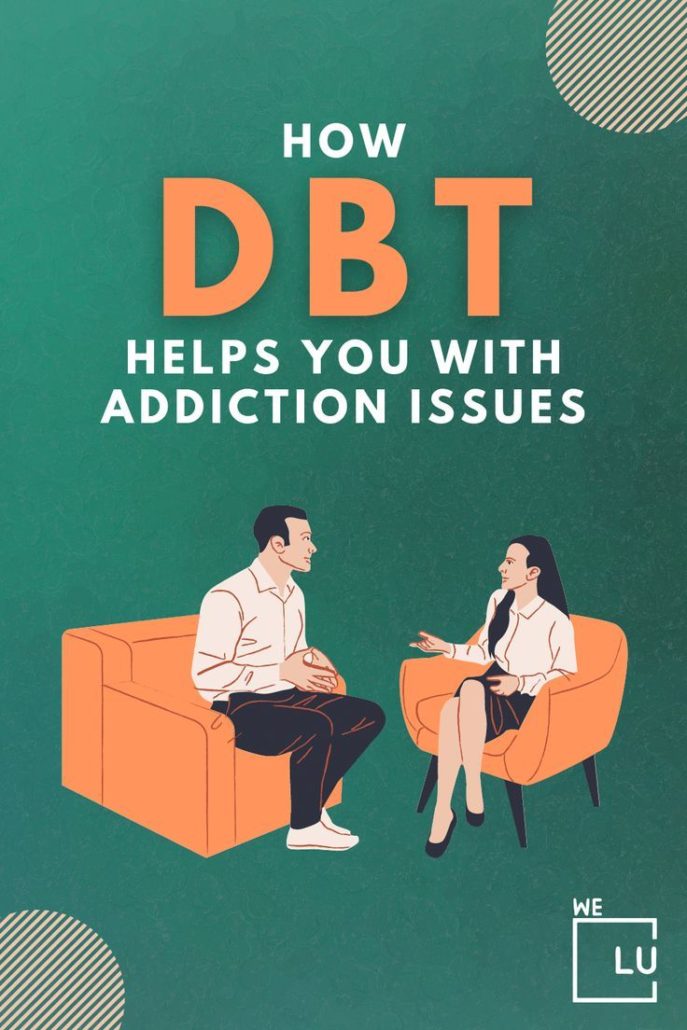
Search We Level Up NJ “Cold Water Extraction” Topics & Resources
Sources
[1] Hydrocodone (Trade Names: Vicodin®, Lortab®, Lorcet-HD®, Hycodan®, Vicoprofen®) (usdoj.gov)
[2] Hydrocodone: MedlinePlus Drug Information
[3] Hydrocodone Combination Products: MedlinePlus Drug Information
[4] Hydrocodone | C18H21NO3 – PubChem (nih.gov)
[5] Hydrocodone and Acetaminophen – StatPearls – NCBI Bookshelf (nih.gov)
[6] Codeine, alone and with paracetamol (acetaminophen), for cancer pain – PMC (nih.gov)
[8] The Relative Value of Opium, Morphine, and Codeine in Diabetes Mellitus – PMC (nih.gov)
[9] Overdose Death Rates | National Institute on Drug Abuse (NIDA) (nih.gov)